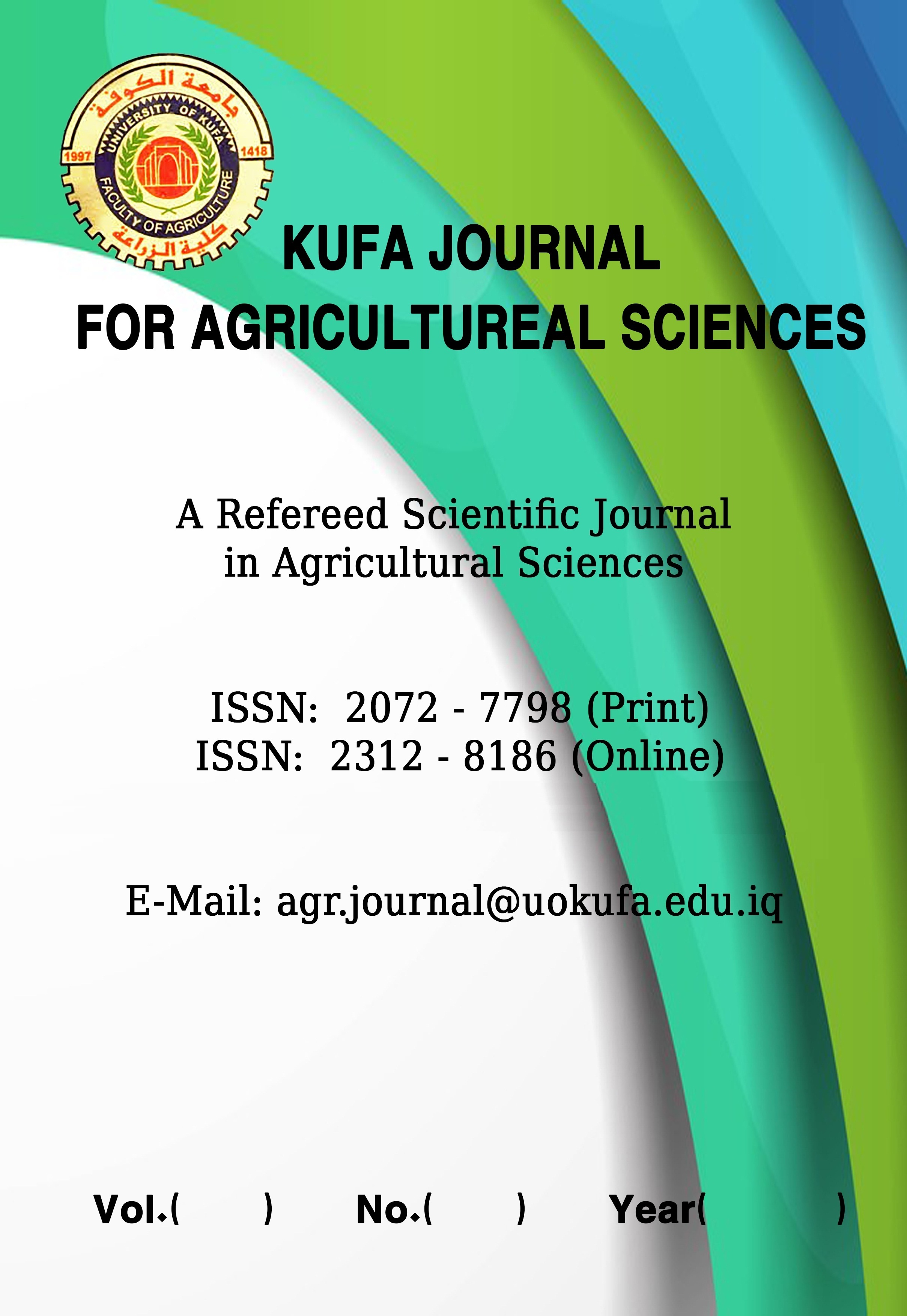Evaluate the Efficiency of Fermented local Corn by Saccharomyces cerevisiae on the Productive Performance of Broiler
DOI:
https://doi.org/10.36077/kjas/2023/v15i1.10276Keywords:
Fermentation, Corn, Broiler, Productive performance, Saccharomyces cerevisiaeAbstract
Current study was conducted in the poultry field of the Department of Animal Production, Faculty of Agriculture, University of Kufa from 22/10/2021 to 25/11/2021 (35 days) to evaluate the efficiency of fermented local corn on the productive performance of broiler. 300 chicks of one day old hybrid Ross 308 with primary weight of 39g were used. Chicks were obtained from private Anwar hatchery in Babylon province then raised in closed house divided into pens with 3m2 for each and distributed randomly on 5 treatments with three replicates for each treatment (60 chicks for each treatment and 20 for each replicate). Treatments were prepared as follows: T1: Imported corn, T2; Unfermented local corn, T3; Replacing fermented local corn instead of imported corn in a ratio of 50%, T4; Replacing fermented local corn instead of imported corn in a ratio of 75% and T5; Replacing fermented local corn instead of imported corn in a ratio of 100%. The outcome indicated that fermenting local corn by Saccharomyces cerevisiae (1g.kg-1 corn for 24h) was improved the nutritional value of corn particularly crude protein and fat as well as decreasing aflatoxin B1 to very low level. Replacing fermented local corn in a ratio of 50 or 75% instead of imported corn was gave close results for final body weight, total weight gain, total feed intake and feed conversion ratio (FCR) compare to imported corn. While, the results of using fermented local corn (T2) was reduced values significantly (P≤0.05) between treatments for most studied characteristics.
Downloads
Downloads
Published
How to Cite
Issue
Section
License
Copyright (c) 2023 Zahraa Ryadh Hamza, Ali J. Hammod

This work is licensed under a Creative Commons Attribution 4.0 International License.
Kufa Journal for Agricultural Sciences is licensed under the Creative Commons Attribution 4.0 International License, which allows users to copy, to create extracts, abstracts and new works from the Article, to alter and revise the Article, and to make commercial use of the Article (including reuse and/or resale of the Article by commercial entities), provided the user gives appropriate credit (with a link to the formal publication through the relevant DOI), provides a link to the license, indicates if changes were made and the licensor is not represented as endorsing the use made of the work. The authors hold the copyright for their published work on KJAS website, while KJAS responsible for appreciate citation for their work, which is released under CC-BY-4.0 enabling the unrestricted use, distribution, and reproduction of an article in any medium, provided that the original work is properly cited.














